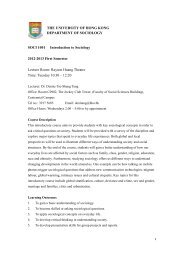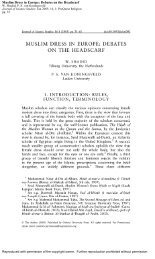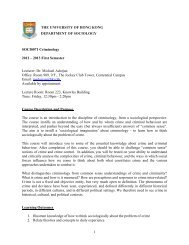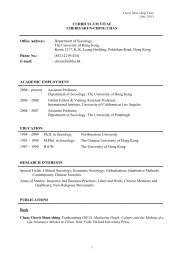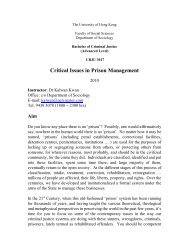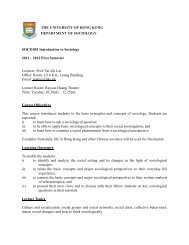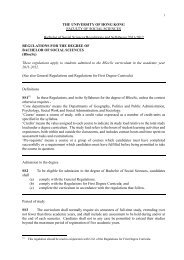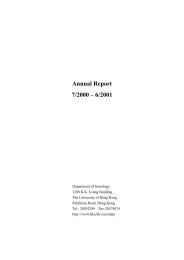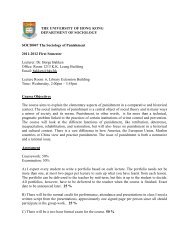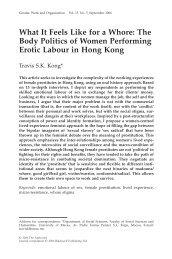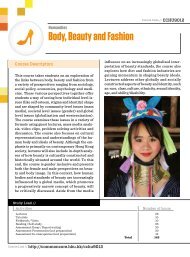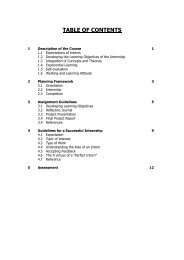The Massacre at the Fosse Ardeatine. History, Myth, Ritual, and ...
The Massacre at the Fosse Ardeatine. History, Myth, Ritual, and ...
The Massacre at the Fosse Ardeatine. History, Myth, Ritual, and ...
You also want an ePaper? Increase the reach of your titles
YUMPU automatically turns print PDFs into web optimized ePapers that Google loves.
value, as Ernesto de Martino says, it acquires a meaning.<br />
Before this, <strong>the</strong> families did not<br />
know wh<strong>at</strong> had happened; in a situ<strong>at</strong>ion where many people were deported or disappeared,<br />
<strong>the</strong>y could not be sure wh<strong>at</strong> had become of those <strong>the</strong>y had lost.<br />
And it was <strong>the</strong> women who<br />
started going around <strong>and</strong> asking questions, trying to track down <strong>the</strong> missing; it seems th<strong>at</strong> <strong>the</strong><br />
men, <strong>the</strong> f<strong>at</strong>hers, had such a crushing sense of failure in <strong>the</strong>ir role th<strong>at</strong> <strong>the</strong>y became useless.<br />
A colleague of mine, in my department, tells this story:<br />
I think my mo<strong>the</strong>r went with some friends of hers, th<strong>at</strong> very day, [i.e. <strong>the</strong> day after <strong>the</strong><br />
liber<strong>at</strong>ion?] to <strong>the</strong> caves.<br />
Of course, in <strong>the</strong> st<strong>at</strong>e <strong>the</strong>y were in … <strong>and</strong> <strong>the</strong>re are very<br />
physical impressions of smells, <strong>the</strong> smells, <strong>and</strong> this is distorted in time.<br />
But my<br />
mo<strong>the</strong>r always told me true things, without distortions. And she says one of things<br />
th<strong>at</strong> … wounded her most, <strong>and</strong> shocked her most, was <strong>the</strong>se SS who were laughing.<br />
Maybe <strong>the</strong>y were anxious. Who knows? And <strong>the</strong>n <strong>the</strong> next day, <strong>the</strong>y formed a sort<br />
of procession of women [which is a religious image]. She went, <strong>and</strong> I think Pilo<br />
Albertelli’s wife went” –<br />
Pilo Albertelli (my own mo<strong>the</strong>r’s philosophy teacher in high school) was one of <strong>the</strong> heores of<br />
<strong>the</strong> Resistance, <strong>and</strong> a major influence on a gener<strong>at</strong>ion of young antifascists. Gabrieli goes on:<br />
“And <strong>the</strong> o<strong>the</strong>r women, <strong>and</strong> she went.<br />
And Lia Albertelli, Pilo Albertelli’s wife, wrote a<br />
poem about this.” <strong>The</strong> poem says: ‘We’re walking, groping, under <strong>the</strong> heavy roof. \<br />
<strong>The</strong><br />
greasy air fills our mouth \<strong>and</strong> chokes our bre<strong>at</strong>h. And we support one ano<strong>the</strong>r, \ holding<br />
h<strong>and</strong>s.\ We are a few brides,\ <strong>and</strong> with us is a sister <strong>and</strong> a mo<strong>the</strong>r.\<br />
rises a tall heap. \ We climb,\ <strong>and</strong> <strong>the</strong> earth breaks under our feet.\<br />
And <strong>at</strong> <strong>the</strong> end of a cave,<br />
And from <strong>the</strong> broken<br />
clods, \ <strong>the</strong> heavy bre<strong>at</strong>h hits us stronger, stronger. \ One picks up a str<strong>and</strong> of hair cluttered<br />
with blood, \her desper<strong>at</strong>e scream throws us to <strong>the</strong> ground.\ <strong>The</strong>y’re underne<strong>at</strong>h, <strong>and</strong> we’re<br />
treading on our feet, \upon <strong>the</strong> f<strong>at</strong>hers of our children’. As this is a poem, should it be set in<br />
lines? Where are <strong>the</strong> line breaks?<br />
11



